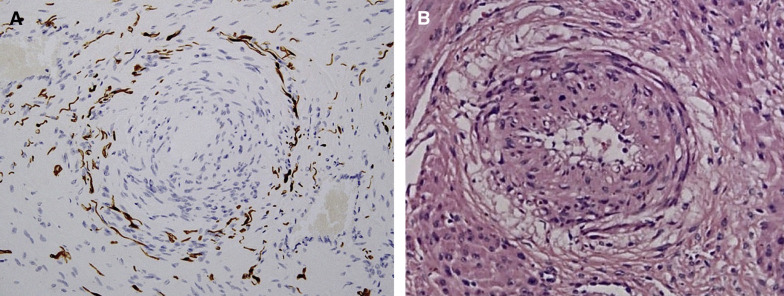Cain et al find that women experiencing “placental syndromes” are at increased risk of serious cardiovascular disease within 5 years. We believe they have a common source of injury, namely, progressive autonomic denervation. Both uterus and kidneys receive sympathetic nerves from the same thoracic segments (T10-12). Persistent physical efforts during defecation are a common source of progressive autonomic injury in Western populations where they complicate 20-30% of Western bowel movements. With the introduction of Western fast foods and removal of squat toilets over the past 25 years, it is becoming a major source of recent, cardiovascular morbidity in China.
In terms of the obstetrics syndromes, stretching injured, intrauterine vasomotor nerves ( Figure ) may activate uterorenal nerves to create a renal corticomedullary shunt leading to preeclampsia with, or without, intrauterine growth restriction. Disruption of narrowed uterine arterioles may cause placental abruption and denervation anywhere in the lower genital tract may increase the risk of opportunist infection and preterm birth, although this may be a less specific outcome compared to early-onset preeclampsia. Hypertension is a common antecedent to the listed, cardiovascular syndromes. The histological hallmark of “resistant” hypertension is renal arteriolar sclerosis that has strikingly similar features to the uterine lesion ( Figure , A). Resistant renal hypertension may result from similar mechanisms, namely injury to renal nerves caused by downward displacement of the kidney through persistent physical efforts during defecation, though clearly, there may be many other contributory factors to hypertension including increased body mass index, persistent hyperglycemia, and type 2 diabetes. By excluding preterm labor and intrauterine growth retardation from their definition of the placental syndromes, Cain et al may trade some sensitivity for specificity. Nevertheless, they present a compelling argument for short-term follow-up of women with placental syndromes in their population. These women may also be at risk of gynecological problems and other Western diseases associated with injuries at different levels of the branches of the sympathetic chains that have longer latent periods between neural injury and clinical presentation.





